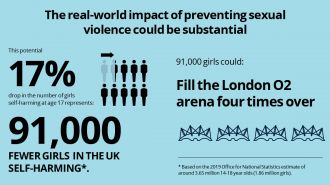- Our studies
- Our research
- Publications and resources
- Data access and training
- About
- News
- Events
- Get in touch
- Join our mailing list
Welcome to our news and blogs section. Here you’ll find the latest developments and insights from across our longitudinal studies.
Growing Up in Digital Europe (GUIDE) is the UK pilot of a major European initiative to create internationally harmonised data for research on child development and wellbeing.
This webinar gives an overview of the data available on care and research opportunities in the four internationally-renowned cohort studies run by the Centre for Longitudinal Studies (CLS).

British adults aged 50 and above experienced their highest-ever levels of mental ill health during the COVID-19 pandemic, even surpassing the well-known peak in midlife, according to new research published in PLOS Medicine.
Generation Z children born into the poorest fifth of families in the UK are 12 times more likely to experience a raft of poor health and educational outcomes by the age of 17 compared to more affluent peers, finds a new report led by UCL researchers.
George Ploubidis gave his Professorial Lecture on 24 May 2023. He explored findings from across several generations suggesting how to delay the onset of chronic illness and promote health and wellbeing.
This short webinar gives first-time users and researchers less familiar with the Millennium Cohort Study (MCS) an insight into this unique longitudinal cohort dataset born at the turn of the century.
This training webinar gives first-time users and researchers less familiar with Next Steps an insight into this unique cohort of ‘millennials’ in England.

Mental health problems like anxiety and depression were more common among younger generations before the COVID-19 outbreak — but the gap between young and old became even wider during the pandemic, according to new research based on five UK longitudinal studies.

Up to one in five adults with a history of poor mental health reported they were ‘much worse off’ financially a year into the COVID-19 pandemic, compared to one in ten of those who had never had psychological problems in adulthood.

Poor mental health among young people (aged 16 and 17) has increased by more than a quarter since 2017, according to new research by UCL and the Sutton Trust, using the COVID Social Mobility & Opportunities (COSMO) study.

The prevalence of serious mental health problems among 17-year-olds could drop by as much as 16.8% for girls and 8.4% for boys if they were not subjected to sexual violence, such as sexual assault and harassment, according to estimates from UCL researchers.

Children conceived through medically assisted reproduction (MAR) fare better at school but are slightly more likely to have mental health problems by their late teens, finds a new study led by researchers at UCL and the University of Helsinki.

Researchers investigating the links between childhood mental health and people’s later outcomes can now access a wealth of new cohort study data.
Ryan Bradshaw
Senior Communications Officer
Phone: 020 7612 6516
Email: r.bradshaw@ucl.ac.uk